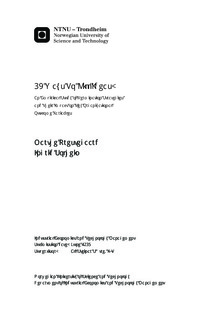17 Ways To Kill Ideas:: An Empirical Study of Termination Strategies and Their Impact on Key Organizational Outcome Variables
Master thesis
Permanent lenke
http://hdl.handle.net/11250/266676Utgivelsesdato
2013Metadata
Vis full innførselSamlinger
Sammendrag
This thesis investigates 17 termination strategies for terminating ideas and project initiatives, building on Daly, Saetre, and Brun?s (2012) prior research. By surveying decision-makers and proponents in both Norwegian and U.S. companies, this thesis investigates which termination strategies are the most prevalent, how effective they are in terminating innovation projects, and how they affect proponents? willingness to continue innovating. The thesis employs Pearson?s bivariate correlation analysis, multiple step-wise linear regression and structural equation modeling. Out of the 17 investigated termination strategies, we find that the termination strategies Cost (63.6%) and Positive Regard (53.6%) are the most prevalent strategies, followed by a group comprised of Low Priority (48.2%), Risk (45.7%), No Market (45.6%), Delay (44.1%), and Encourage Future Initiatives (39.2%). In terms of effectiveness, Negative Professional Consequences and Positive Regard are rated as the most effective termination strategies, followed by Cost, Tease & Humiliate, and Review Board.The thesis defines two new constructs, Positive Termination Strategies and Negative Termination Strategies based on proponents motivation for coming back with new ideas and if they feel negatively valued after having their project terminated. We argue that the Positive and Negative Termination Strategies are likely to impact proponents in terms of how they affect the organizational climate for innovation, defined by key organizational outcome variables: Psychological Safety (Edmondson, 1999), Flexibility (Patterson et al., 2005), Learning Behavior (Edmondson, 1999), Learning Capability (Hull & Covin, 2010), and Top Management?s Risk Orientation (Im, Montoya, & Workman, 2012). We find that Positive Termination Strategies, and particularly Positive Regard, have a positive impact on proponents? willingness to continue innovating, while Negative Termination Strategies, and particularly Delay and Negative Professional Consequences, have a negative impact on proponents? willingness to continue innovating. In addition, we expand Edmondson?s (1999) model of team learning, and find that Psychological Safety has a significant mediating role in the relationship between the Positive and Negative Termination Strategies and key organizational outcome variables. The model also suggests that Flexibility has a mediating role between Psychological Safety, and Learning Behavior and Learning Capability. The thesis contributes to a more detailed insight into the termination strategies used by managers to terminate ideas or project initiatives in the organization.
